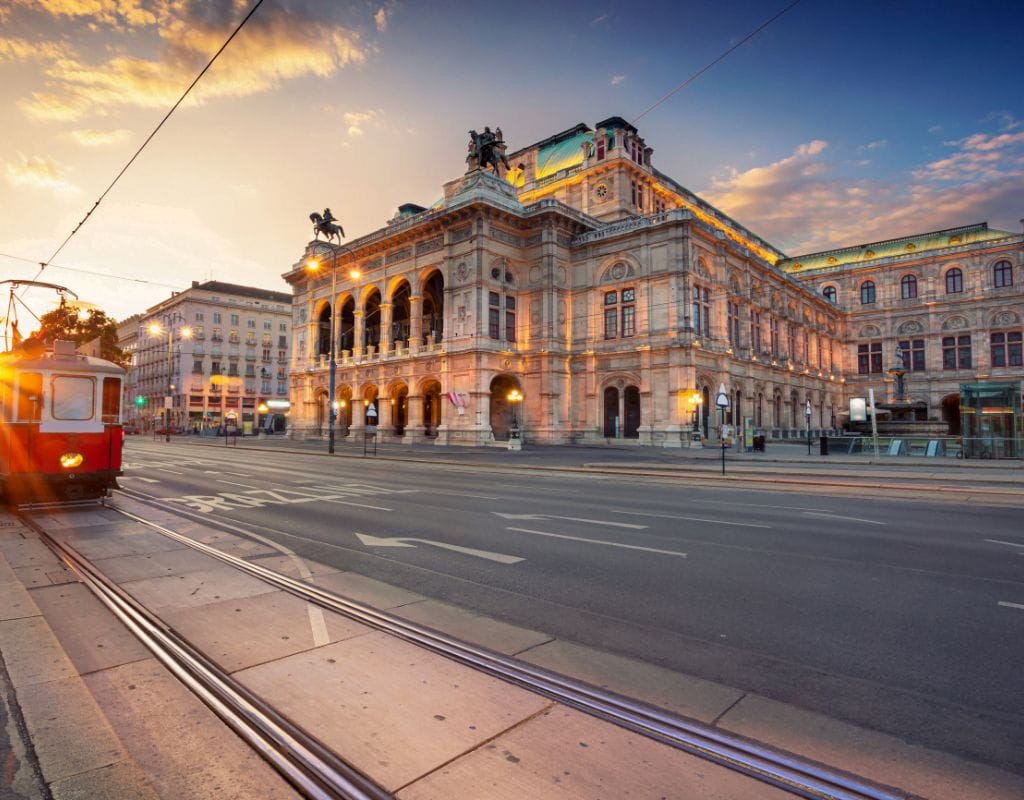Understanding Austria from an American Perspective
Austria, with its stunning alpine landscapes, rich cultural heritage, and sophisticated cities, offers a unique travel experience. For Americans visiting Austria, understanding the local customs and culture can enhance their travel experience. Here’s a guide to navigating Austrian culture from an American perspective.
Greeting Rituals and Communication
In Austria, greetings are often formal. A firm handshake, accompanied by a smile and direct eye contact, is customary in both social and professional settings. Unlike in the U.S., where first names are commonly used, Austrians often use titles and last names, such as “Herr” (Mr.) or “Frau” (Mrs.), particularly in formal situations.
Cultural Tip: Greeting shopkeepers and service staff with a “Grüß Gott” (Good day) when entering or leaving is polite.
Food & Drink
Austrian cuisine is hearty and flavorful, strongly emphasizing local and seasonal ingredients. From Wiener Schnitzel to Apfelstrudel, meals are often a social affair. Unlike in the U.S., where dining might be faster-paced, Austrians often take their time enjoying leisurely meals with friends and family.
Regional Insight: Each region has its specialties, like “Tafelspitz” in Vienna or “Käsekrainer” (a cheese-filled sausage) in Styria.
Dress Sense and Attire
Austrians tend to dress elegantly, especially in urban settings. Casual clothing is acceptable, but Austrians generally favor a smart-casual approach. Unlike in many parts of the U.S., where casual attire is widespread, Austrians often dress up for dinner or cultural events.
Cultural Note: Traditional attire, like Dirndls and Lederhosen, is common at festivals and special occasions, particularly in rural areas.
Austrian Punctuality
Punctuality is a significant aspect of Austrian culture, similar to other German-speaking countries. Arriving on time for social and business appointments is expected, and being late is considered impolite. This contrasts with the more relaxed time-keeping approach in some parts of the U.S.
Tip: Plan to arrive a few minutes early for meetings or reservations.
Public Conduct and Etiquette
Austrians value privacy and personal space. Conversations in public tend to be quiet, and it’s considered rude to speak loudly or draw attention to oneself. Unlike in the U.S., where public displays of emotion are more accepted, Austrians often maintain a more reserved demeanor in public.
Cultural Difference: Avoid making loud noises or using mobile phones in public transport; quiet is preferred.
Business Decorum
Austrian business culture is formal and hierarchical. Meetings are well-structured, and there is a clear distinction between professional and personal life. Unlike the more informal business style in the U.S., Austrians appreciate titles and formality in professional interactions.
Business Tip: Dress conservatively, use titles when addressing colleagues, and be prepared for formal meetings with set agendas.
Tipping Culture
Tipping in Austria is customary, but more modest than in the U.S. A 5-10% tip is usually sufficient in restaurants and cafes. Unlike in the U.S., where tipping is often a significant part of service workers’ income, a smaller amount or rounding up the bill is expected in Austria.
Cultural Note: The service charge is sometimes included, so check your bill before tipping.
Retail Etiquette and Negotiation
In Austria, prices are fixed, and haggling is not part of the shopping culture. This differs from the U.S., where negotiation can sometimes occur in markets or independent shops. Austrians value politeness and patience in customer interactions.
Shopping Tip: Be mindful of the “Ruhetag” (rest day) when many stores close early or remain closed.
Efficiency in Public Transport
Austria boasts an efficient public transport network, including trains, trams, and buses. Austrians often rely on public transportation more than cars, especially in cities. This is different from many parts of the U.S., where cars are often the primary mode of transport.
Travel Note: Purchase tickets in advance and validate them before boarding. Fines for traveling without a valid ticket are steep.
Exploring Tourist Sites
Austria is renowned for its historical landmarks, from palaces and castles to music and art museums. Unlike in the U.S., where self-guided tours are popular, guided tours are highly recommended in Austria to gain deeper insights into the country’s history and culture.
Visitor Insight: Respect local customs, especially in religious or historical sites, where modest dress is required.
Addressing Conflicts
Austrians prefer polite, measured communication and often avoid direct confrontation. This contrasts with the U.S., where direct communication is more common. When addressing a conflict or misunderstanding, remain calm and composed and aim for a diplomatic resolution.
Cultural Difference: Emphasize mutual respect and understanding rather than direct criticism.
Regional Diversity
Austria’s regions offer diverse cultural experiences, from Vienna’s musical heritage, Tyrol’s alpine traditions, and Styria’s wine culture. The area has its customs, dialects, and specialties, providing a rich cultural landscape for exploration.
Regional Insight: Explore beyond Vienna to experience Austria’s varied cultural offerings, from Salzburg’s music festivals to the rustic charm of Carinthia.
Visit our Austria profile to discover all the essential information about culture, history, and practical tips for your trip


